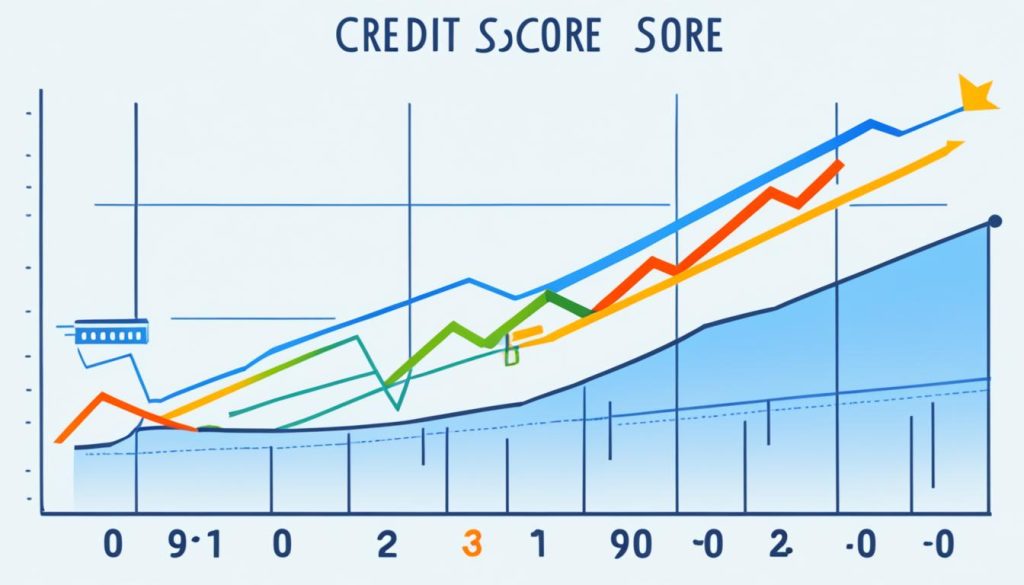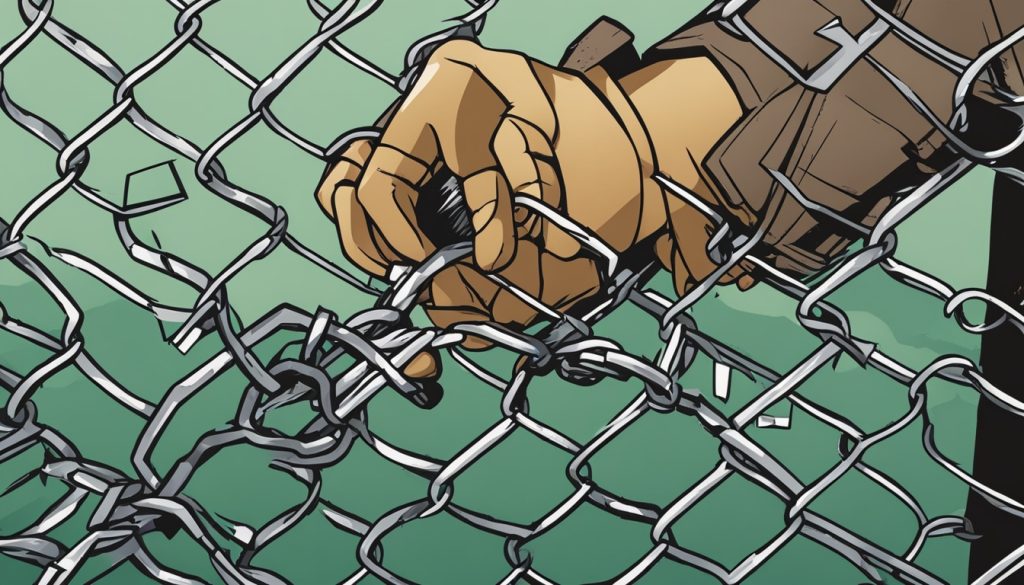Many people look to credit repair companies to boost their credit scores. But, these companies can actually make things worse financially. This article will show you the risks and safer ways to improve your credit.
Credit repair firms often ask for big fees, either upfront or monthly. These costs can be a big financial load1. Even though they promise to help, their methods might actually hurt your credit more.
Key Takeaways
- Credit repair companies often charge high fees that can worsen your financial situation.
- Negative information can remain on your credit report for up to seven years, regardless of credit repair efforts.
- Disputing accurate information may lead to negative consequences from credit bureaus.
- Consumers have the right to one free credit report annually from each of the three credit bureaus.
- Exploring alternative credit improvement strategies, such as credit counseling and DIY credit repair, can be more effective and cost-efficient.
- https://finserviceshub.com/interest-rates-mastery-guide-for-financial-experts/
Unveiling the Risks of Credit Repair Companies
Credit repair companies might seem like a good way to fix your credit. But, it’s important to know the risks before you start. They can be expensive, make false promises, and even scam you, leading to serious financial problems.
Understanding Credit Repair Companies
Credit repair companies help people fix errors on their credit reports to improve their scores. Sounds good, but there are big risks2. They use methods like the Section 609 Credit Repair Secret to challenge negative info. But, you can do this yourself by contacting credit agencies directly2.
High Costs and Fees
Many credit repair companies ask for a lot of money, often upfront or monthly. These costs can be a big financial hit with no sure results3. Good companies don’t ask for money upfront and charge only for what they do3.
Misleading Claims and False Promises
Some companies promise to erase bad credit or boost scores quickly. But, fixing credit takes time, and some promises are just not true2. Always check out companies and read reviews to see if they’re trustworthy2.
Scams and Fraudulent Practices
Scams in credit repair are common. They can be taking your money without doing anything or even creating fake identities4. Always be careful to avoid these scams to protect your credit and money4.
Choosing a reputable credit repair company is key. Make sure they follow the law and are honest about what they do. This way, you can make smart choices and avoid the risks.
credit repair: Temporary Boosts and Long-Term Consequences
When you start a credit dispute, the credit bureaus will check with your creditors about the info5. Creditors have 30 days to answer, and during this time, the disputed item is taken off your credit report5. This can make your credit score go up for a little while, but the long-term effects might be bigger.
How Credit Disputes Work
Credit repair companies might tell you to dispute all negative items on your report, even if they’re true5. But, this could lead to trouble, as credit bureaus are good at spotting fake disputes5. If you keep disputing things that are actually true, the bureaus might see you as dishonest. This could hurt your creditworthiness.
Length of Time Negative Information Remains on the Record
Some negative items, like collections, charge-offs, judgments, and late payments, can stay on your credit report for up to seven years6. Trying to get rid of these items by disputing them over and over again might not work well.
The Risks of Quick-Fix Tactics
Some credit repair methods might make your credit score look better for a short time, but they can harm you later5. For instance, closing old accounts can make your credit history look newer, which can hurt your credit score6. Also, using too much of your credit can hurt your creditworthiness. So, it’s important to use your credit wisely and keep your balance low6.
Being financially responsible is the best way to improve your credit for good57. This means paying on time, keeping your credit use low, and building a diverse credit history.

“Successful credit repair requires patience, diligence, and a long-term commitment to responsible financial habits.”
Choosing a Legitimate Credit Repair Service
When looking for credit repair, picking a trustworthy service is key. It’s important to do your homework, read reviews, and see how the company ranks with the Better Business Bureau8.
The Credit Repair Organizations Act sets rules for these services. But, not all follow these rules. This act stops companies from asking for money upfront, requires written contracts, and gives you the right to cancel. Picking a company that follows the law is crucial to avoid legal issues.
Tips for Choosing a Legitimate Credit Repair Service
- Know what credit repair companies can legally do and achieve.
- Search for companies with clear pricing and guarantees, like Credit Saint and The Credit People9.
- Look for companies with a long history, such as Sky Blue Credit and Credit Saint9.
- Stay away from companies making false promises or claiming quick fixes, as these are often scams.
By doing your homework, understanding the rules, and picking a reputable credit repair service, you can confidently fix your credit and avoid legal problems10.
“Choosing the right credit repair service is essential for protecting your financial well-being and achieving long-term credit success.”
The Safer Path: Do-It-Yourself Credit Repair
If you want to boost your credit score, you don’t have to pay for credit repair services. You can fix your credit on your own and see great results for free11.
Start by getting your free credit reports from Equifax, Experian, and TransUnion11. Look over these reports to find any mistakes that could be hurting your score. Then, it’s important to dispute these errors with the credit agencies11.
Knowing how your credit score works is crucial11. Things like how you pay your bills, how much credit you use, how long you’ve had credit, new credit requests, and your credit mix affect your score11. By focusing on these areas, you can make changes that help improve your score over time.
Fixing your credit might seem tough, but doing it yourself has many benefits. You’re in full control, can talk directly to creditors, and skip the high fees of credit repair services11. Plus, being active in your credit repair can lead to better financial habits for the future12.
Remember, fixing your credit is a long-term effort12. It might take a few months to see big changes, but it’s worth it. With patience, hard work, and smart strategies, you can raise your credit score and open up better financial doors without spending a lot.

Choosing DIY credit repair means you’re taking charge and learning more about your finances. So, don’t wait. Begin your credit repair journey now and take control of your financial future.
Conclusion
Traditional credit repair companies might seem appealing, but they come with big downsides. Think about reaching out to a nonprofit credit counseling service or a SaaS like CredEvolv. These options focus on being open, teaching you, and helping you with your financial health13. Taking charge of your credit repair can lead to lasting improvements and a stronger financial future.
Fixing your credit isn’t quick or easy14. Working with a trusted credit counseling service or a SaaS like CredEvolv can really help you boost your credit score14. These groups aim to give you custom advice, follow the law, and equip you with the skills and tools to handle your money well.
The best way to fix your credit is to do it yourself with expert advice. Using credit repair alternatives, focusing on financial wellness, and maybe getting help from credit union services can lead to lasting credit fixes and a brighter financial future. Remember, fixing your credit is a long-term effort, not a short race. With patience, hard work, and the right support, you can get past the hurdles and build the credit you deserve.
FAQ
What are credit repair companies and how do they work?
Credit repair companies help improve your credit score. They do this by fixing errors on your credit report or giving advice on better credit habits.
What are the hidden risks of using credit repair companies?
These companies often charge high fees and make false promises. They might even use illegal tactics, making your financial situation worse. Always research well before choosing one.
How do credit disputes work, and what are the potential consequences?
When you dispute a credit item, the credit bureau checks with the creditor. If the item is removed, your score might go up. But, if the creditor confirms the info, it goes back on your report, affecting your score.
What should I consider when choosing a credit repair company?
Look into the company’s reputation, read reviews, and check with the Better Business Bureau. Make sure they follow the law and don’t promise too much. Picking a reputable company is crucial to avoid legal issues.
What are the benefits of doing credit repair on my own?
You can fix your credit yourself, for free. Just check your credit report, dispute errors, and work on improving your credit habits. There’s no need to hire a company.

